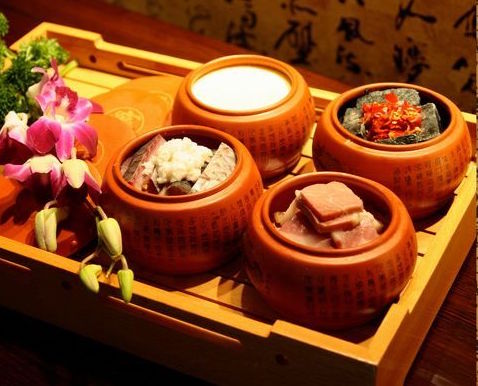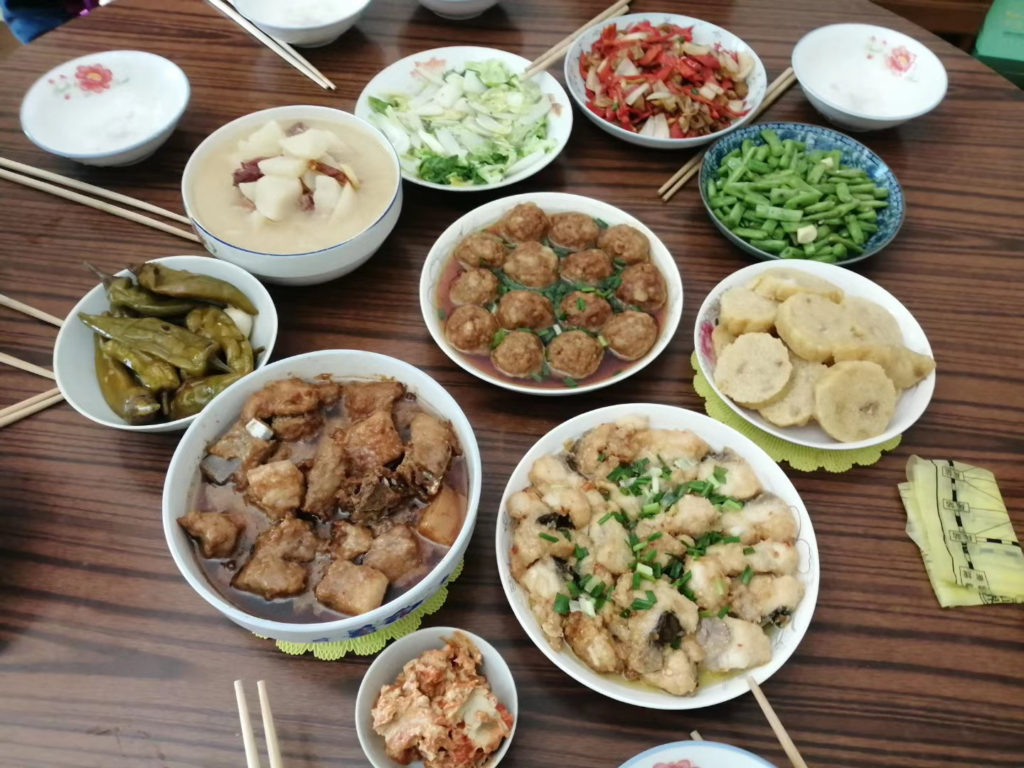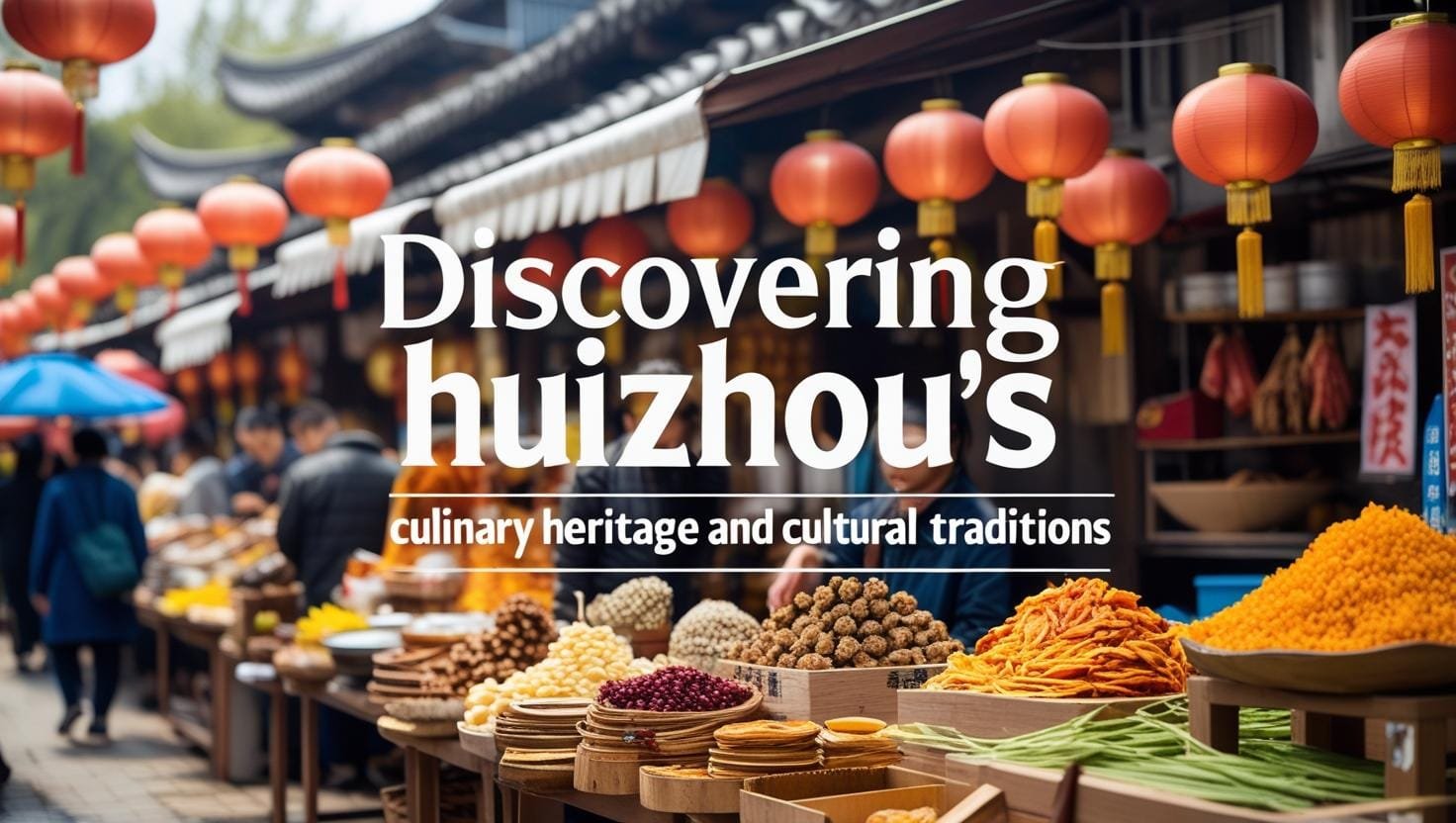“`html
Discovering Huizhou’s Culinary Heritage and Cultural Traditions
Welcome to Jusha Travel, where we’re passionate about uncovering the hidden gems of China’s vast cultural tapestry. If you’re a traveler eager to dive into Huizhou culinary heritage, you’ll find Huizhou—an enchanting region in Anhui Province—a perfect destination. This area blends rich Huizhou cultural heritage with fascinating aspects of China culinary history, making it ideal for culture enthusiasts and adventurers alike. From savoring traditional dishes to exploring vibrant cultural attractions in Huizhou, this guide will inspire your next journey. Here at jusha.travel, we love sharing tips to make your China adventure unforgettable, so let’s embark on this flavorful and cultural exploration together.

The Historical Roots of Huizhou’s Culinary and Cultural Legacy
Huizhou’s story is one of ancient prosperity and innovation, deeply intertwined with China culinary history. Nestled in Anhui Province, this region was once a bustling hub for merchants during the Ming and Qing dynasties, where food and culture evolved hand-in-hand. Huizhou culinary heritage traces back to the Tang and Song eras, when local ingredients like bamboo shoots, mushrooms, and freshwater fish became staples in creative dishes that reflected the area’s rugged landscapes and trade routes.
This culinary tradition, as detailed on [Chinese Food](https://willsfood.ca/chinese_food/), flourished due to Huizhou’s commercial elite, who turned everyday ingredients into artful meals. For instance, the emphasis on slow-cooking techniques like steaming and braising not only preserved flavors but also aligned with traditional Chinese beliefs in balance and wellness. As you plan your Huizhou travel guide, imagine wandering through Tunxi Ancient Street, where the aroma of caramelized dishes wafts from street vendors. This isn’t just about eating; it’s about experiencing China cultural tours that connect you to centuries of history.
Fun fact: Huizhou’s cuisine often incorporates “regimen effects,” meaning dishes are designed for health benefits, such as using herbs for digestion—a nod to ancient Chinese medicine that’s still relevant today. Whether you’re a foodie or a history buff, understanding this foundation enhances your appreciation for Huizhou cultural heritage.

Signature Dishes and the Essence of Huizhou Cuisine
Diving deeper into Huizhou culinary heritage, let’s explore the heart of what makes this cuisine so irresistible. Known for its robust flavors and deep colors, Huizhou dishes rely on fresh, local ingredients that capture the region’s essence. Picture feasting on fermented mandarin fish, a provincial intangible cultural treasure, which involves a meticulous multi-step process that enhances its umami taste [as highlighted in this story on fermented mandarin fish](https://english.news.cn/20250620/383101f9887f4b2183c0cd3a671fc89c/c.html).
This dish, along with others like stewed turtle with ham, showcases techniques such as slow-cooking over a soft charcoal fire, which locks in nutrients and flavors. Huizhou’s reliance on ingredients like wild herbs and chestnuts not only defines its taste but also ties into broader China culinary history, where regional diversity tells the story of the nation. For travelers, trying these at a local festival—such as the International Huizhou Cuisine and Food Culture Festival in Jixi County—is a must.
If you’re visiting, practical tips include seeking out family-run eateries for an authentic experience. Opt for group tours that combine meals with cultural attractions in Huizhou, like visiting ancient villages where these recipes originated. Remember, Huizhou cuisine’s bold use of oil and spices might be intense for newcomers, so start with milder options like pan-fried fermented tofu. As part of your Huizhou travel guide, we recommend pairing your culinary adventure with a walk through the region’s tea houses, where you can learn about tea’s role in daily life—a subtle blend of food and culture that jusha.travel enthusiasts rave about.

Exploring Huizhou’s Vibrant Cultural Attractions and Traditions
Beyond the plate, Huizhou cultural heritage shines through in its performing arts, architecture, and folk customs, offering a holistic view of China cultural tours. One standout is Hui Opera, a dramatic form that emerged in the late Ming Dynasty, featuring high-pitched singing, elaborate dances, and comedic elements that bring stories of ancient life to the stage [as explored in Huizhou Culture resources](https://www.chinaxiantour.com/huangshan-travel-guide/huizhou-culture.html).
This opera isn’t just entertainment; it’s a window into the merchant class heritage that shaped Huizhou over a thousand years ago. Stroll through preserved villages with their sturdy stone homes and ancestral temples, and you’ll see how architecture reflects a deep respect for nature and community. For tech-savvy travelers, modern apps like WeChat can help you find real-time schedules for cultural events, blending tradition with contemporary convenience—a nod to China’s innovative spirit that jusha.travel often highlights.
Interesting insight: Huizhou’s influence extends to arts like ink-making and calligraphy, which were essential for the region’s scholars and merchants. When planning your trip, consider immersive experiences, such as workshops on traditional crafts, to fully engage with cultural attractions in Huizhou. These activities not only provide memorable photos but also foster a deeper connection to China’s past, making your journey more meaningful.

Practical Tips for Your Huizhou Adventure
To make the most of Huizhou cultural heritage and Huizhou travel guide, here are some actionable tips tailored for modern explorers. Start by timing your visit to coincide with seasonal festivals, where you can sample Huizhou culinary heritage at its finest—think fresh harvests in autumn for the best bamboo shoots and mushrooms. For China cultural tours, book guided walks through UNESCO-listed sites like the ancient Huizhou villages, which offer insights into daily life from centuries ago.
Technology plays a key role in enhancing your experience; use apps like Trip.com to navigate and translate menus, ensuring you don’t miss out on hidden gems. If you’re traveling solo, join group tours for safety and camaraderie, or stay in homestays for an intimate taste of local hospitality as detailed in Anhui Cuisine guides(https://www.thechinajourney.com/anhui-cuisine/). Always respect cultural norms, such as removing shoes in homes or temples, to show sensitivity to traditions.
Pro tip: Pack versatile clothing for varying weather and consider dietary preferences—many dishes can be adapted for vegetarians. By blending these practical elements with your exploration of China culinary history; you’ll create lasting memories that go beyond the ordinary.
In wrapping up our journey through Huizhou, we’ve uncovered the seamless blend of Huizhou culinary heritage and Huizhou cultural heritage, from flavorful dishes to timeless traditions. These elements not only enrich China culinary history but also provide invaluable insights for travelers seeking authentic experiences. At jusha.travel, we’re dedicated to inspiring your adventures, so remember, exploring places like Huizhou can transform your understanding of China’s diverse culture.
We’d love to hear about your own Huizhou stories—share them in the comments below! For more tips on cultural attractions in Huizhou or other China destinations, visit jusha.travel and check out our related articles, like our guide to Anhui’s hidden spots. Safe travels and bon appétit!
“`

